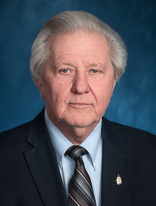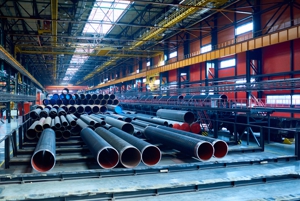The Looming Plot Against Workers

Kumho Tire herded workers into anti-union brainwashing sessions, fired union supporters, including a mother of seven who was eight months pregnant, and plastered the plant with anti-labor literature during the workers’ drive to join the United Steelworkers (USW) several years ago.
“They even had caps that said ‘Vote No,’” recalled Christopher Burks, who helped to lead the organizing effort. “The managers wore them, and they tried to hand them out to the hourly workers.”
Kumho broke so many laws during the desperate scorched-earth campaign at its Macon, Ga., plant that an administrative law judge with the National Labor Relations Board (NLRB) took the extraordinary step of ordering the company to call workers together and read a statement admitting its egregious wrongdoing.
The workers ultimately stood up to Kumho, stayed the course and joined the union. But without the NLRB to hold the company to account, “we wouldn’t have won,” said Burks, who now serves his co-workers as president of USW Local 09-008.
Future victories like that are in jeopardy right now as right-wing extremists plot to regain control of the White House, gut Americans’ labor rights and subjugate workers to greedy corporations.
These fanatics coined a catchphrase for their attack on working families: Project 2025.
They’re scheming to replace Joe Biden, the most pro-worker president in history, with a Republican eager to neuter the NLRB, cripple similar agencies and roll back the gains workers continue making in Biden’s booming post-pandemic economy.
Biden not only empowered the NLRB and the Occupational Safety and Health Administration (OSHA) to better serve workers but created a White House Task Force on Worker Organizing and Empowerment to give more Americans a pathway to the middle class.
But right-wingers view labor rights and safety regulations as so many impediments to corporate profits and control. So the cabal behind Project 2025 contrived a solution.
More ...










